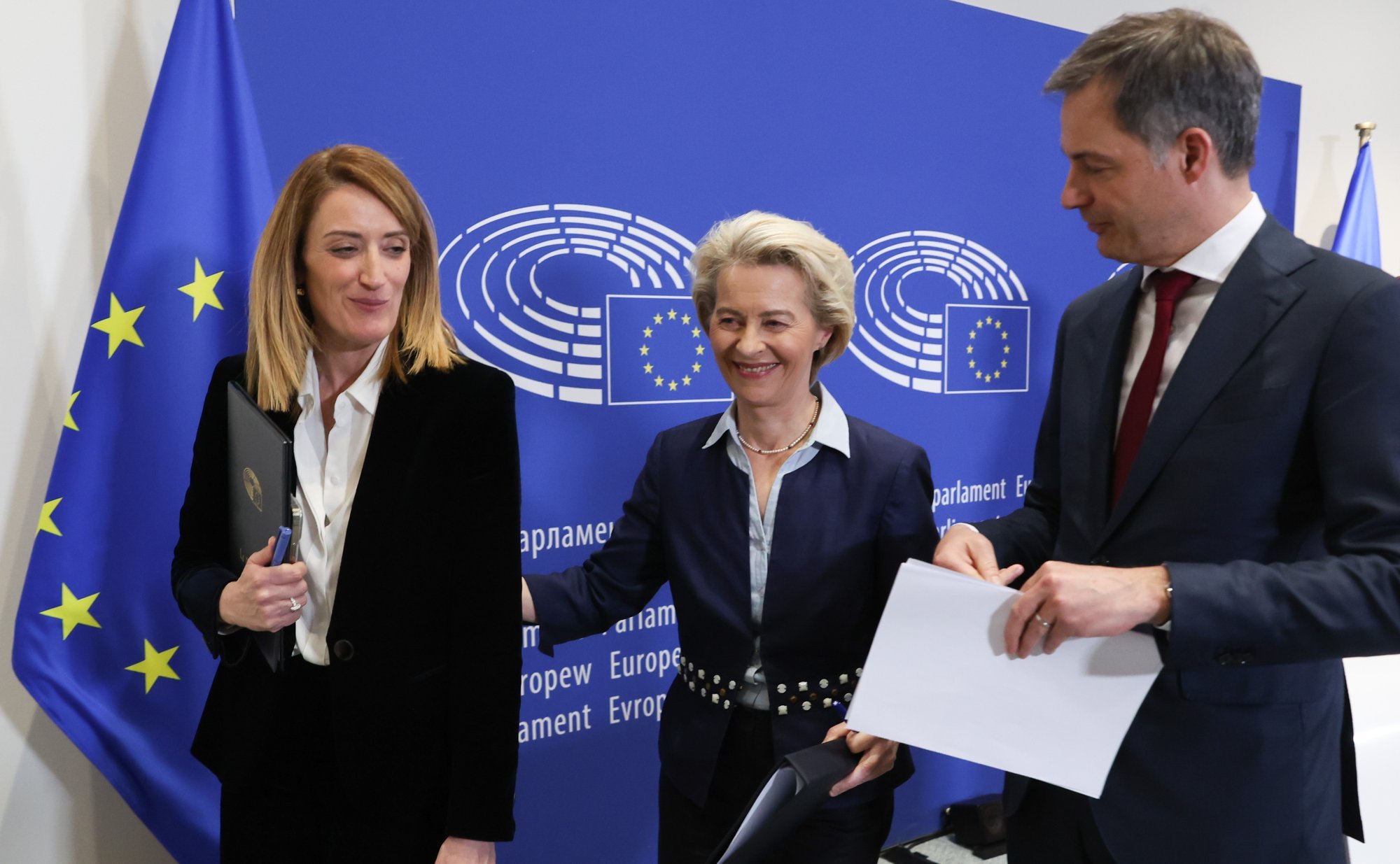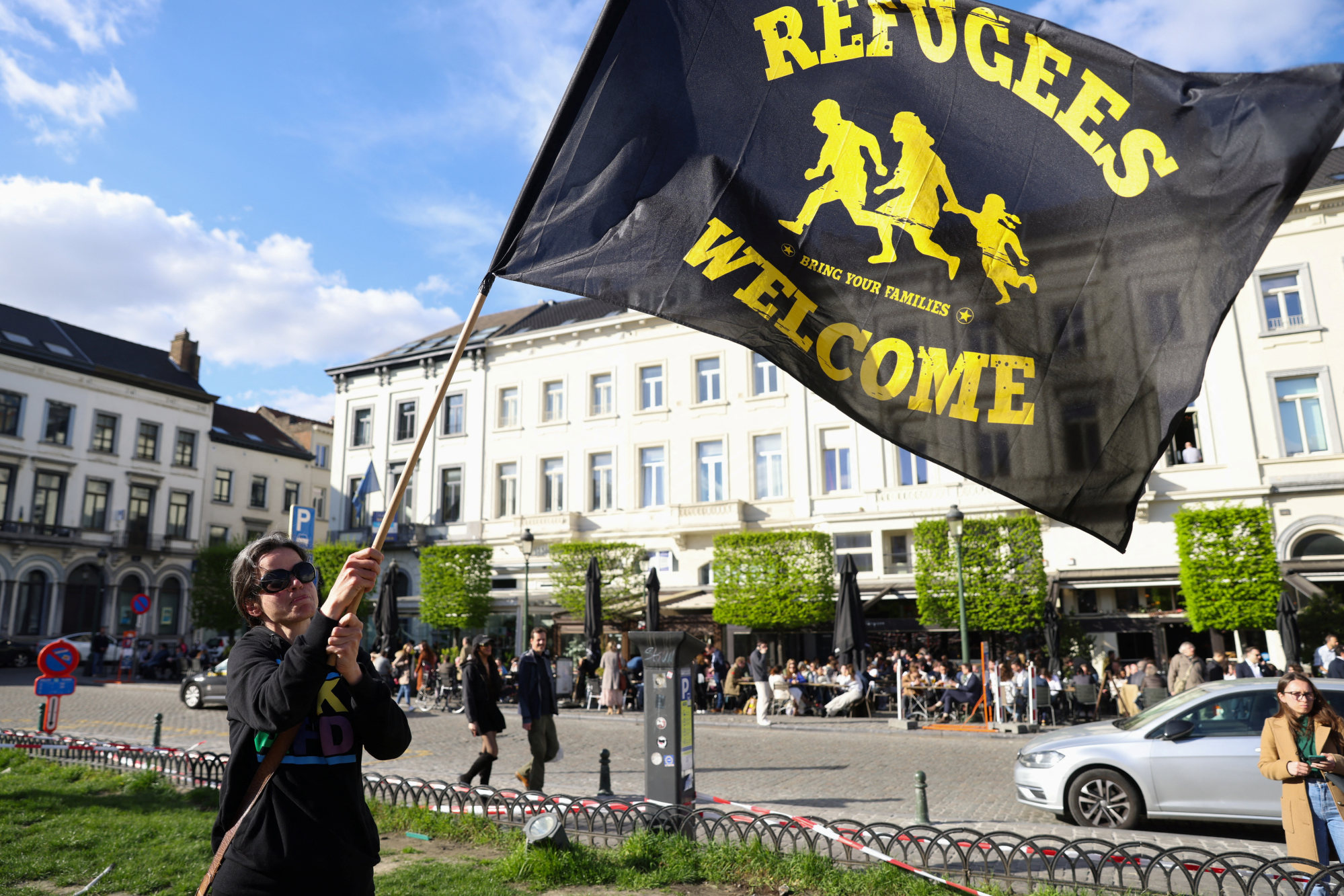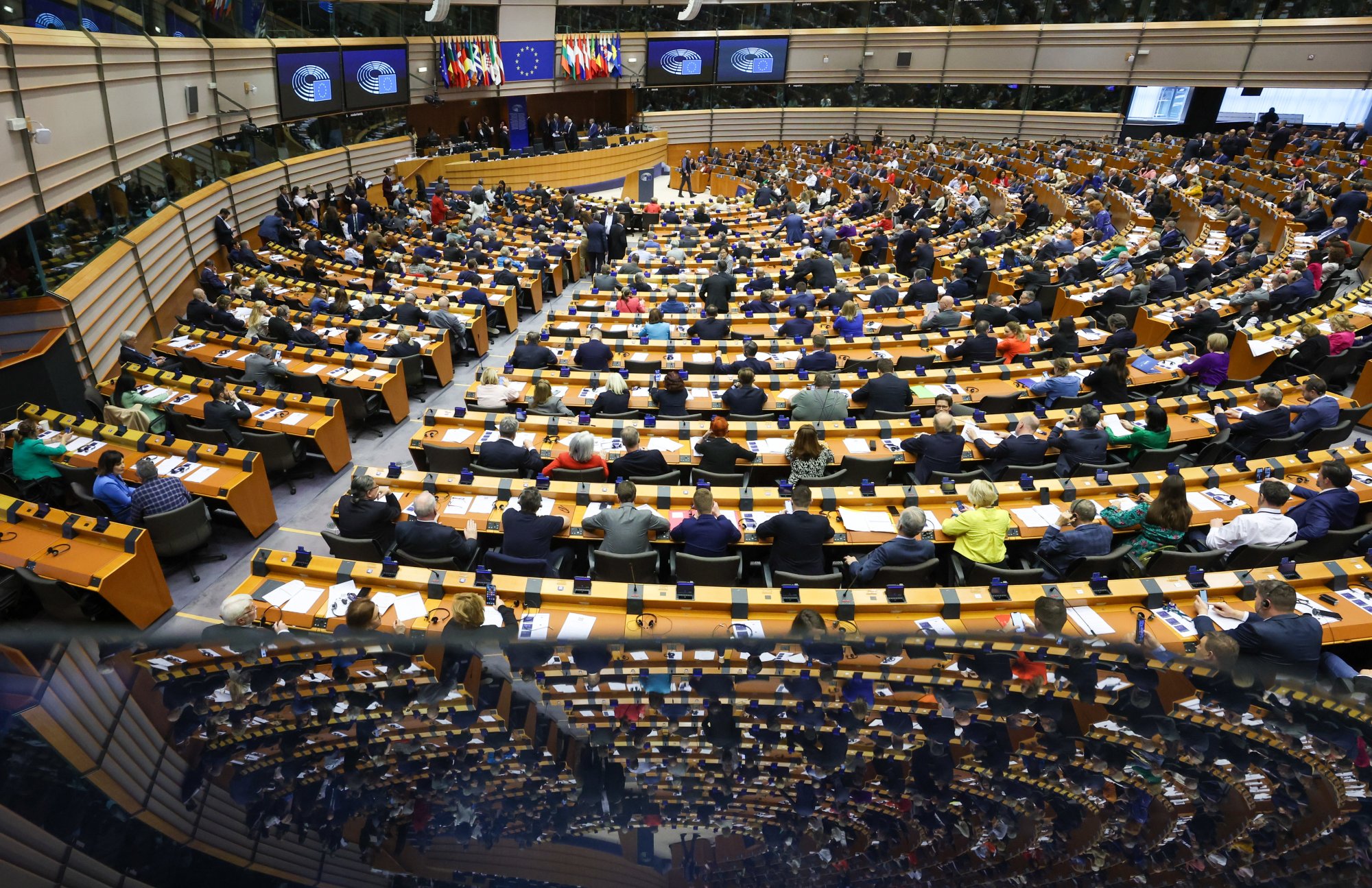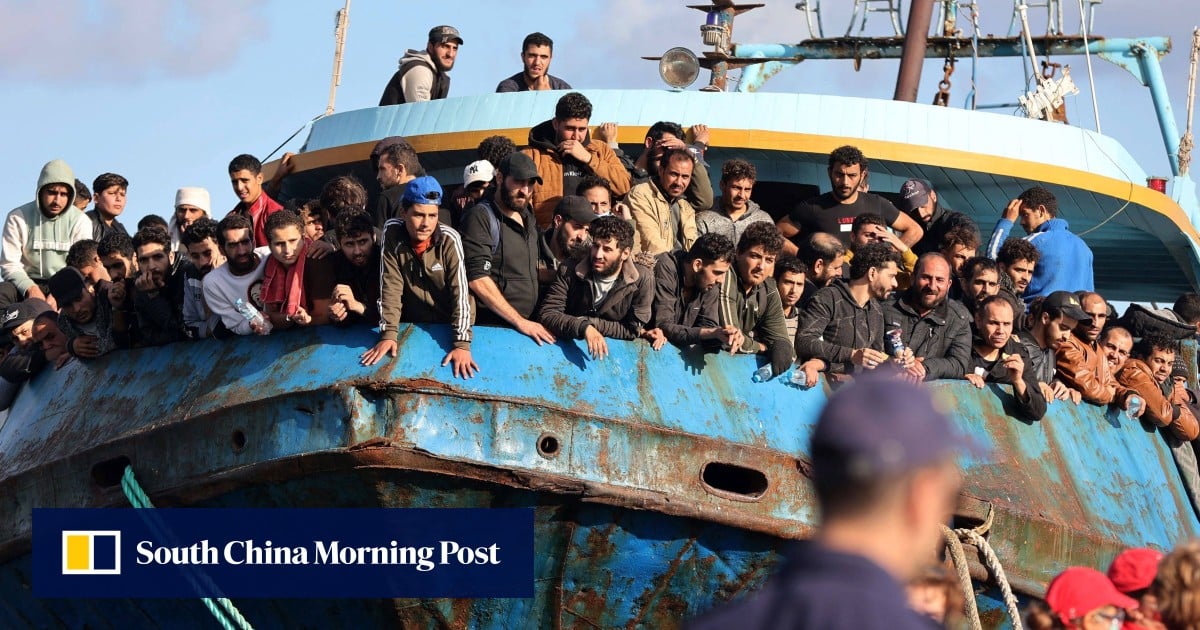“We must be the ones to decide who comes to the European Union and under what circumstances, and not the smugglers and traffickers,” she said.

EU governments – a majority of which previously approved the pact – also welcomed its adoption.
German Chancellor Olaf Scholz and Greece’s migration minister, Dimitris Kairidis, both called it “historic”.
Italian Interior Minister Matteo Piantedosi hailed what he termed “the best possible compromise.”
But there was dissent when Hungarian Prime Minister Viktor Orban derided the reform as “another nail in the coffin of the European Union”.
“Unity is dead, secure borders are no more. Hungary will never give in to the mass migration frenzy! We need a change in Brussels in order to StopMigration!” Orban said in a post to social media platform X.
Albania to hold migrants for Italy, worrying activists, but EU sees a template
Albania to hold migrants for Italy, worrying activists, but EU sees a template
For very different reasons, migrant charities also slammed the pact, which includes building border centres to hold asylum seekers and sending some to outside “safe” countries.
Amnesty International said the EU was “shamefully” backing a deal “they know will lead to greater human suffering” while the Red Cross federation urged member states “to guarantee humane conditions for asylum seekers and migrants affected”.
The vote itself was initially disrupted by protesters yelling: “The pact kills – vote no!”, while dozens of demonstrators outside the parliament building in Brussels held up placards with slogans decrying the reform.
The parliament’s far-left grouping, which maintains that the reforms are incompatible with Europe’s commitment to upholding human rights, said it was a “dark day”. It was “a pact with the devil”, said Damien Careme, a lawmaker from the Greens group.

As well as Orban, other far-right lawmakers also opposed the passage of the 10 laws making up the pact as insufficient to stop irregular migrants they accuse of spreading insecurity and threatening to “submerge” European identity.
Marine Le Pen, the figurehead of France’s far-right National Rally, complained the changes would give “legal impunity to NGOs complicit with smugglers”.
She and her party’s leader who sits in the European Parliament, Jordan Bardella, said they would seek to overturn the reform after EU elections in June, which are tipped to boost far-right numbers in the legislature.
The pact’s measures are due to come into force in 2026, after the European Commission first sets out how it would be implemented.
New border centres would hold irregular migrants while their asylum requests are vetted. And deportations of those deemed inadmissible would be sped up.
Dutch far-right firebrand Geert Wilders says won’t be PM
Dutch far-right firebrand Geert Wilders says won’t be PM
The pact also requires EU countries to take in thousands of asylum seekers from “frontline” states such as Italy and Greece, or – if they refuse – to provide money or other resources to the under-pressure nations.
Even ahead of Orban’s broadside, his anti-immigration government reaffirmed Hungary would not be taking in any asylum seekers.
“This new migration pact practically gives the green light to illegal migration to Europe,” Hungary’s Foreign Minister Peter Szijjarto said before the vote, adding that Budapest “will not allow illegal migrants to set foot here in Hungary”.
German’s Scholz said on X that the accord stands for “solidarity among European states” and would “finally relieve the burden on those countries that are particularly hard hit”.
One measure particularly criticised by migrant charities is the sending of asylum seekers to countries outside the EU deemed “safe”, if the migrant has sufficient ties to that country.

The pact resulted from years of arduous negotiations spurred by a massive inflow of irregular migrants in 2015, many from war-torn Syria and Afghanistan.
Under current EU rules, the arrival country bears responsibility for hosting and vetting asylum seekers, and returning those deemed inadmissible. That has put southern frontline states under pressure and fuelled far-right opposition.
A political breakthrough came in December when a weighted majority of EU countries backed the reforms – overcoming opposition from Hungary and Poland.
In parallel with the reform, the EU has been multiplying the same sort of deal it struck with Turkey in 2016 to stem migratory flows.
It has reached accords with Tunisia and, most recently, Egypt that are portrayed as broader cooperation arrangements. Many lawmakers have, however, criticised the deals.

